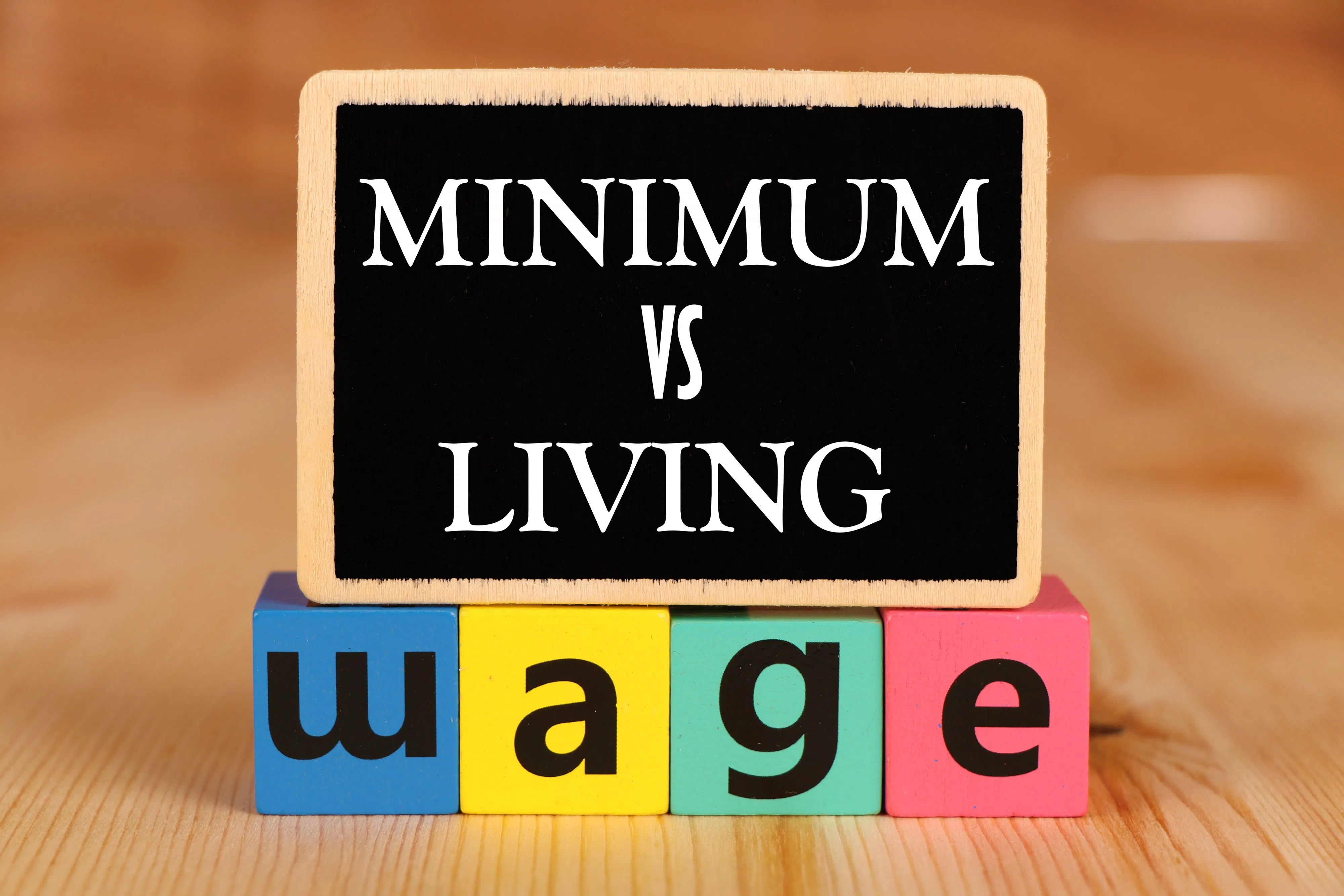If Alberta’s Official Opposition, the NDP, has its way, an increase to the provincial minimum wage would be approved in the legislature on Nov. 17.
Their proposed Bill 201 will be put forth just days after the Alberta Living Wage Network (ALWN) released its latest figures for 21 Alberta communities.
According to the ALWN, living wage calculations are an important indicator of affordability and, overall, the rise in living wages demonstrates that life is becoming more unaffordable for Albertans.
The report notes a living wage is the hourly wage a worker needs to earn to cover their basic expenses and participate in their community.
A LAGGING MINIMUM WAGE
All this in mind, Alberta’s minimum wage is $15.00 per hour and has been that way since 2019. It is the lowest in Canada, meanwhile all other provinces and territories have implemented or will implement wage increases this year or next.
The ALWN report pegs Rocky Mountain House at $21.85 per hour for a person to make ends meet, making it one of the few communities to see a decline from 2024, and of 8.0 per cent.
“The annual living wage calculation of the hourly income reminds all Albertans of the income required to meet basic needs in their community,” says Franco Savoia, chairperson, ALWN.
“For employers it provides a benchmark from which to assess their total compensation practices. As Albertans let us use the living wage calculation to deepen our understanding of the working poor in our community and to patronize living wage employers.
Most municipalities in the province saw an increase, though Rocky Mountain House, for example, went down 8.0 per cent to $21.85 per hour.
Highest on the list is Jasper at $31.80 per hour, then Airdrie at $29.00, and Calgary at $26.50.
Elsewhere in the province:
- Airdrie $29.00/hr Up 19.3% from last year
- Barrhead $21.55/hr Down 12.0% from last year
- Bonnyville $22.15/hr Down 6.1% from last year
- Brooks $22.00/hr Up 18.9% from last year
- Calgary $26.50/hr Up 8.4% from last year
- Cold Lake $19.10/hr Down 2.3% from last year
- Drayton Valley $20.35/hr Up 2.5% from last year
- Edmonton $22.30/hr Up 7.0% from last year
- Fort McMurray $23.00/hr Down 2.1% from last year
- Grand Prairie $21.80/hr Up 15.6% from last year
- High River $23.40/hr Up 8.8% from last year
- Jasper $31.80/hr Up 1.3% from last year
- Lethbridge $22.30/hr Up 11.5% from last year
- Lloydminster, AB/SK $21.65/hr Up 15.5% from last year
- Medicine Hat $18.15/hr Up 3.4% from last year
- Red Deer $20.65/hr Up 9.3% from last year
- Rocky Mountain House $21.85/hr Down 8.0% from last year
- Special Areas $21.25/hr Down 6.0% from last year
- Spruce Grove $23.70/hr Up 14.8% from last year
- St. Albert $25.60/hr Up 17.7% from last year
- Stony Plain $24.30/hr Up 14.1% from last year
BUCKING THE STATUS QUO
The Alberta NDP explained Friday that Bill 201 would raise the minimum wage to $16.00 starting in December 2025, then rise to $17.00 sometime in 2026, and finally to $18.00 by October 2027. But it would be indexed to the Consumer Price Index (CPI) and continue to increase with the cost of living.
Bill 201 would also notably remove the youth minimum wage which allows workers under 18 to be paid just $13.00 per hour.
Finally, it would introduce tip‑protection measures to ensure gratuities go directly to the workers who earn them and to prevent tip skimming.
“This should be an easy vote. Saying yes to Bill 201 means standing with workers and improving wages and affordability of everyday things,” said NDP leader Naheed Nenshi. “On Monday, the UCP will decide whether this bill passes and whether workers get the fairness they deserve.”
In a statement to Pattison Media’s Alberta newsrooms, the Ministry of Jobs, Economy, Trade and Immigration claimed that from 2015 to 2018 — when the NDP were in power — 21,000 young Albertans lost their jobs as a result of the 47 per cent increase to minimum wage.
Kathleen Ganley, NDP Whip, claimed the UCP is pulling those numbers from a report designed to generate whatever they want.
“We have the lowest minimum wage, an even lower youth minimum wage, and we have the highest youth unemployment in the country, so obviously those things do not correlate in the way they would suggest. It’s worth noting that a Parkland Institute report talks about hospitality and food services, the sector in which most minimum wage jobs exist, and it actually added jobs every year between 2015 and 2019,” she said.
“This bill proposal, it’s not radical. It’s phased in over time to recognize the needs of small business, but we need to do something because people who are working full-time jobs are relying on food banks to feed their kids, and that’s not right.”
The UCP statement to Pattison Media went on to note that Alberta has one of the lowest provincial income tax rates in the country.
“[There is] no provincial sales tax, and limitless opportunities; Alberta continues to be the best place in Canada to live, work, invest and raise a family. We’re building on that advantage and helping Albertans keep more of their hard-earned dollars by delivering on our promise to cut taxes – saving individual Albertans an average of $750 or $1,500 for a two-income household,” the office says.
“Our government is also taking an approach that balances the needs of Alberta’s workforce, while ensuring businesses are not burdened with higher costs that put their staff’s employment at risk, particularly among youth and other entry-level workers. This includes focusing on real solutions to youth unemployment through the new Alberta Youth Employment Incentive.”
They also claim that 95 per cent of Albertans earn more than the minimum wage, and that 92 per cent of minimum wage earners do not live in a low-income household.
The NDP’s Nenshi agreed with the ministry about one thing: Alberta being the best place to work and live; but answering a question from rdnewsNOW, he said aside from that, the so-called ‘Alberta Advantage’ is eroding.
“What we know is that since the UCP took power, utility rates have tripled, housing has gotten out of control, and we continue to have the highest auto insurance rates in the country. Their plan to regulate auto insurance rates increases them by 7.5 per cent come January 1,” he said.
“If you go to work every day, you deserve to live without fear when you get to the till at the grocery store, and fundamentally that’s all we’re asking for.”
Nenshi claimed they’ve talked to workers, businesses big and small, and chambers of commerce, adding that their proposal doesn’t jump to living wage numbers right away because it would admittedly be disruptive.
He said the UCP, meantime, are “burying their heads in the sand.”
ALWN also runs an employer certification program to recognize employers that are paying their employees a living wage.













Comments